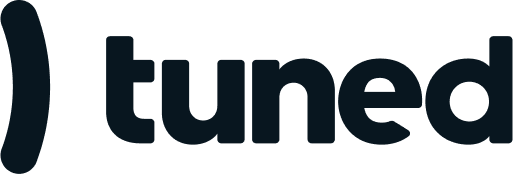- Hearing care for school children is poor at best, with many states lacking testing mandates, equipment not maintained, and a "gold standard" of testing developed in 1879
- There are approximately 130,000 schools in the US, but only an estimated 700 educational audiologists, meaning children with hearing loss are missed or potentially misdiagnosed for other problems, such as ADHD
- Children with undiagnosed hearing loss suffer from poor performance in school, difficulty forming peer relationships, and an inability to pursue interests
NEW YORK, June 27, 2023 /PRNewswire/ -- Tuned, a digital hearing health company focused on providing hearing care for all, today announced the launch of its pediatric platform, which will provide hearing screening and care for children aged 13 through 17 years of age. Offered as an employer-sponsored benefit, Tuned's innovative pediatric program combines modern hearing knowledge and technology with teleaudiology to modernize a testing method that has not changed for almost 50 years. Children across the US will now have access to a pediatric audiologist for consultation and care, which is critical to speech and language development, communication and learning for those living with auditory pathway problems.
Children with hearing loss are often overlooked, leaving them to languish in schools, undiagnosed and untreated, at risk for developmental delays. Most are not screened past birth, meaning those with hearing loss are likely to have difficulty with academic achievement, especially reading and math skills. Approximately 1 to 3 children per 1,000 in the US have hearing loss, with an estimated 12.5% of children aged 6-19 showing evidence of noise-induced hearing loss due to listening to loud sounds over an extended time.
Tuned's pediatric platform is the first-of-its-kind, using cutting-edge technologies to understand how the entire auditory pathway, which acts as a "line" to the brain, is functioning. Connecting children with a pediatric audiologist allows for appropriate interventions that can help identify children with hearing loss and prevent them from falling behind. Current school screening protocols are outdated and don't provide information for hearing concerns, such as difficulty understanding speech in noise. Central auditory processing disorder testing is needed to properly assess auditory problems and impact in school age children.
"Children with undiagnosed hearing loss are simply missed, placed in special education or misdiagnosed with learning disabilities, such as ADHD," said Dr. Jacqueline Scholl, Head of Pediatrics at Tuned. "Research and technology have advanced to the point that there is no reason hearing loss is not identified. Parents have the right to give their children the care they need to ensure they succeed both academically and socially."
Even minimal, uncorrected hearing loss is associated with increased risk of poor performance on educational tests; dysfunction in speech, language, and behavior; and higher rates of social emotional difficulties, including lower self-esteem. Teens affected by hearing loss can become confused, check out, feel less self-reliant, experience isolation and lose their identity. This impacts their engagement in school and their ability to form peer relationships.
"Hearing loss has always been ignored because it can't be seen, and most people don't understand the connection between hearing and learning. Children are especially vulnerable to hearing loss since they are more sensitive to loud sounds and damage can occur at lower levels in less amount of time," said Danny Aronson, CEO and Co-Founder at Tuned. "By offering a modern solution as an employee benefit, Tuned is making sure parents have the agency to protect their children, and to navigate care, insurance and state regulations when searching for solutions for their child's hearing loss."
Tuned's revolutionary pediatric audiology platform works by providing parents with an iPad and headphones, pre-loaded with two different hearing assessment programs - Rhythmicity (developed by the University of California San Francisco) and Sound Scouts. The gamified programs capture an individual's ability to keep a beat, hear and comprehend. Once complete, patients consult with an audiologist who explains results and makes recommendations for next steps. The program includes care navigation, which helps parents navigate potential treatments or solutions, which include understanding what local assistance is available.







